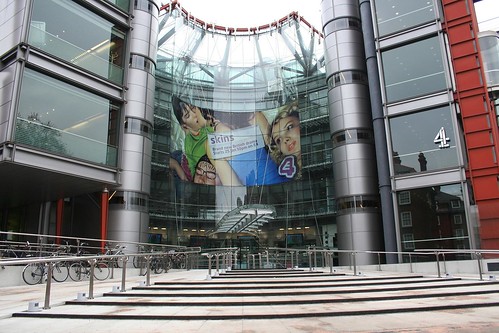There has been a tidal wave of reporting, comment and speculation today about Channel 4’s decision not to become a radio broadcaster. The implications of their decision came through in two parts. Initially, it became clear that Channel 4 were pulling out of 4 Digital Group, which effectively dealt a death blow to the national multiplex licence that the group (which also included Bauer and UBC) had won in summer last year. Then, later, there was confirmation that Channel 4 would be scrapping its radio division entirely, ending the possibility that one or more of Channel 4’s stations might end up on the DigitalOne multiplex. There has been substantial amounts of speculation and comment regarding the discussions between DigitalOne, Channel 4 and OFCOM, and the issues are so complex, it’s hard to see how any of it could be entirely accurate.
The news that Channel 4 won’t be participating in DAB Digital Radio is, of course, not great. But Andy Duncan was careful to point to Channel 4’s own financial difficulties as being a key determiner in their decision, not DAB Digital Radio as a platform. I wonder how much the C4 Board were working out how to justify cuts to their core, established, business (and a certain amount of pleading for government assistance) as the same time they were launching a radio division. I believe Andy when he says that Channel 4 went into this with all good intention, and are just being clobbered by the economic situation. So maybe it’s not “never”, just “not now”. It’s a shame, because they had some good ideas (particularly for data services) – but they don’t have the monopoly on those.
Some of the current doom-mongering is happening because so much expectation was heaped upon Channel 4. If it became perceived wisdom that Channel 4 would invigorate the Digital Radio business, then clearly a “no show” tends to suggest the opposite. But I would disagree; indeed, some projects in DAB have been held back waiting for the outcome of the Channel 4 / Second National Multiplex story. There are now fewer unknowns to deal with, which hopefully makes decision making on re-inventing DAB somewhat clearer.
In my opinion, not building a second national digital network is a very good thing for the radio industry. The last thing the industry needed now is to be facing another long-term and expensive commitment to transmission infrastructure; infrastructure that would provide capacity that currently isn’t needed. Remember that the second national multiplex licence sprang into life (well, “was slowly conceived”) when DigitalOne was full and getting fuller. But we have capacity now – both on DigitalOne, and on local and regional multiplexes.
There are other benefits too. DAB in the UK needs a shake up, and one that (hopefully) the right combination of DRWG, OFCOM and the broadcasters will give it. To make really effective (and necessary) changes requires as clean a sheet a possible, and it would have been awkward to have a D2 multiplex just a few years into its existence whilst all the other multiplex licences reach potentially useful breakpoints (both in their licence terms and their infrastructure contracts). If DRWG recommends replanning, there’s no easier time to do it. Similarly, at some point we will need to look at the opportunities that DAB+ might bring to us.
Radio is suffering at the moment. Small stations are struggling to stay above water, and everyone is feeling the impact of a turbulent economy. Channel 4’s arrival might have stimulated some renewed interest in radio advertising, but in the short term they probably would have been grabbing revenue off other broadcasters, and doing that in lean times is hard on everyone.
When reading the doom-and-gloom headlines, and some of the melo-dramatic reporting (and “commentary”), it’s easy to lose track of the fact that DAB is a pretty good consumer story. In the four years since 2004 we’ve moved household penetration from 3% to 27%, and receiver costs have dropped to sub £20. (Admittedly, the 5 years before that were pretty dud). DAB accounts for 11% of radio listening, which means it’s underpinning about £60m of revenue for commercial radio.
The threats to DAB are understood and fixable. There are no problems that are insurmountable, and no threats outside the control of the UK radio industry. No other technology has suddenly appeared that makes DAB look irrelevant. Most people believe that the decision (if there is one) is whether radio stays analogue or goes digital using DAB – I don’t hear anyone seriously postulating using an alternate digital technology.
I’m reconciled to the fact that there’s going to be lots of negative commentary about DAB over the coming weeks, and a lot of it won’t be very accurate. Channel 4 not committing to DAB at this stage won’t kill it, but when the dust has settled, it might just make it stronger.
Photo: Channel 4 Television Headquarters (CC) .Martin. @ flickr
